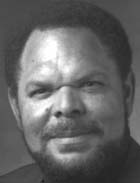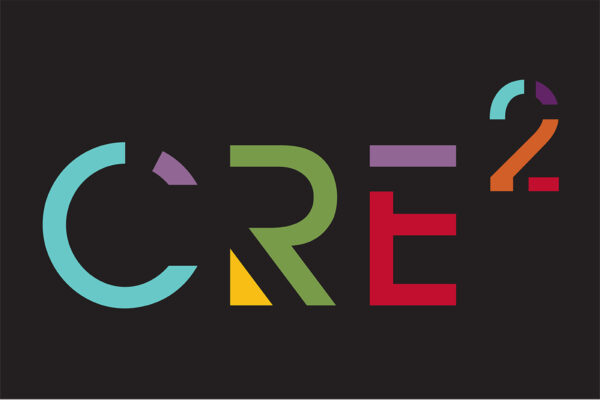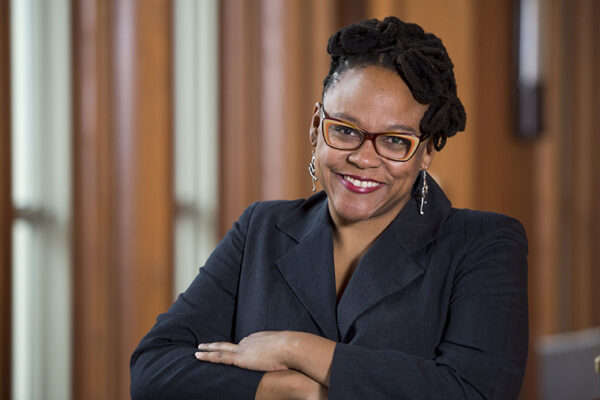Many Americans can guess a caller’s ethnic background from their first hello on the telephone.
However, the inventor of the term “linguistic profiling” has found in a current study that when a voice sounds African-American or Mexican-American, racial discrimination may follow.

In studying this phenomenon through hundreds of test phone calls, John Baugh, Ph.D., the Margaret Bush Wilson Professor and director of African and African American Studies in Arts & Sciences at Washington University in St. Louis, has found that many people made racist, snap judgments about callers with diverse dialects.
Some potential employers, real estate agents, loan officers and service providers did it repeatedly, says Baugh. Long before they could evaluate callers’ abilities, accomplishments, credit rating, work ethic or good works, they blocked callers based solely on linguistics.
Such racist reactions frequently break federal and state fair housing and equal employment opportunity laws.

In the first two years of his linguistic profiling study, Baugh has found that this kind of profiling is a skill that too often is used to discriminate and diminish the caller’s chance at the American dream of a house or equal opportunity in the job market.
Baugh’s study is backed by a three-year $500,000 grant from the Ford Foundation.
Racist telephone tactics
While Baugh coined the term linguistic profiling, many who suffer from twisted stereotypes about dialect have known for decades about the racist tactic. His mother knew and took protective action. When he was a youngster in Philadelphia, he could tell if she were talking to a white person or a black person on the telephone.
His study shows that some companies screen calls on answering machines and don’t return calls of those whose voices seem to identify them as black or Latino.
Some companies instruct their phone clerks to brush aside any chance of a face-to-face appointment to view a sales property or interview for a job based on the sound of a caller’s voice. Other employees routinely write their guess about a caller’s race on company phone message slips.
Such discrimination occurs across America, says Baugh, who is also a professor of psychology and holds appointments in the departments of Anthropology, Education and English, all in Arts & Sciences.
If the availability of an advertised job or an apartment is denied at a face-to-face meeting with a person of color, employers and renters know that they can be accused of racism. However, when accused of racist and unfair tactics over the phone, many companies have played dumb about racial linguistic profiling.
Had you from ‘hello’
Baugh has found racist responses in hundreds of calls. He tests ads with a series of three calls. First someone speaking with an African-American dialect responds to an ad. Then, a researcher with a Mexican-style Spanish-English dialect calls. Finally, a third caller uses what most people regard as Standard English.
Many times researchers found that the person using the ethnic dialect got no return calls. If they did reach the company, frequently they were told that what was advertised was no longer available, though it was still available to the Standard English speaker.
In no test calls did researchers offer company employees information about the callers’ credit rating, educational background, job history or other qualifications.
“Those who sound white get the appointment,” Baugh says.
Lack of response or refusal to offer face-to-face appointments was higher for Latinos than for African-Americans, Baugh adds.
When challenged in lawsuits, many businesses deny that they can determine race or ethnicity over the phone. However, Baugh’s ongoing study shows that over the phone many Americans are able to accurately guess the age, race, sex, ethnicity, region of heritage and other social demographics based on a few sentences, even just a hello.
Baugh has prepared to be an expert witness in several court cases but so far all have been settled out of court.
Celebrating all dialects
Recognizing heritage in a voice does not make a person a racist, Baugh says.
In October 2002 on MSNBC, Baugh debated the late Johnnie Cochran, then one of the nation’s best-known defense attorneys, about dialect recognition. In the O.J. Simpson case, Cochran had argued that speculation about a speaker’s race based on hearing a person’s voice was inherently racist.
Such recognition is often made by many intelligent listeners. Millions of Americans speak with the lilting cadences of their ancestors.
“I celebrate all dialects,” Baugh says.
So do musicians, playwrights, storytellers, historians and actors. He and many other academic linguists have coached actors and actresses in preparing for roles that require the special tang of non-standard English accents.
Many professional speakers, especially those in broadcast, who learned to speak in South Boston, the Louisiana bayous, Minnesota’s Scandinavian-American crossroads, Los Angeles barrios, Native American reservations or Scotch-Irish Appalachian towns, have stripped their family’s cadences from their pronunciation.
They scrub down colorful, historic expressions that sometimes are shards of a second language their family once spoke, says Baugh.
Instead, these public speakers aim to speak General American English — what most Americans consider Standard American English.
Baugh’s research shows that not all accents get a neutral or negative reaction from the American public. He has found that many Americans consider people with a British upper-class accent to be more cultured or intelligent than those who used General American. Listeners’ snap judgments about the culture behind the British accent may reflect American’s insecurity about their own English, he says.
Speakers with German accents — even if they stumble into grammatical errors — are considered brilliant, his research has shown. The listeners may not even be able to name the accent as German-American. Baugh expects that the brainy stereotype comes from comics and cartoons mimicking Albert Einstein’s German-American accent and from a duck — Walt Disney’s Germanic scientist Ludwig Von Drake.
Tapping a vein
While Baugh coined the term linguistic profiling, there is nothing new about the prejudice, as observing his mother’s phone conversations taught him. Even now it still is only a sideline in his scholarship as the nation’s foremost expert on varied African-American English, also called Ebonics.
It was not until he was about 38, with a doctoral degree, before he ever considered researching linguistic profiling. After being appointed to the Center for Advanced Studies in Behavior at Stanford University, he went shopping for a house for his family, then living in Los Angeles.
He telephoned agents advertising houses. When he made those calls he used what he calls his “professional” English. Even George Bernard Shaw’s fictitious linguist Henry Higgins would not conclude that he is African-American using that voice.
All agents seemed eager to show him houses for sale. When he showed up, most welcomed him warmly, but four, surprised by his race, told him the properties were no longer available.
“I could do a comedy routine about reactions and what they didn’t say.”
No one ever told him, “Oh, we didn’t know you were black on the phone,” but their eyes popped and the unsaid remarks would be the core of his stand-up comic monologue, he says.
Beyond the comedy, he recognized a serious racist problem.
Instead of just wondering what would have happened if he telephoned using an African-American dialect, he did an experiment. He made a series of three telephone calls using both styles of English and then a Mexican-American accent. The Standard English voice got better treatment. He set out to do wider research.
“I tapped a vein,” he says.
In a survey of his own accents, he had hundreds score his disembodied voices and try to identify his background. In those tests, 93 percent identified his “professional English voice” as a white person; 86 percent thought the black dialect as a black person; and 89 percent identified his Latino voice as a Mexican.
He laughed about getting the least convincing score as a black person. His vocal differences in those tests were only in intonation, not in grammar.
Extending empathy
Americans tempted to use their ear for linguistic profiling in racist ways should remember two things, he says.
• They should realize that by an accident of birth they have the privilege to speak Standard English.
• Standard English speakers, descended from non-English immigrants, should show respect for their own ancestors who were challenged to become fluent in English as their second language. They should extend empathy with patience and tolerance to those whose linguistic styles differ from their own use of the English language.
Descendents of African slaves were especially challenged, Baugh notes. Their slave ancestors often were deprived of their family’s language from the time of their capture in Africa.
Slave traders systematically separated captives — in holding pens, in ships and on these shores at auctions — from others who shared the same language. Once sold, slaves were often isolated from anyone who shared their language.
The varied linguistic traditions of black English — Ebonics — evolved over generations when it was illegal to teach African slaves to read or write and when many had limited opportunities to hear native Standard English speakers.


